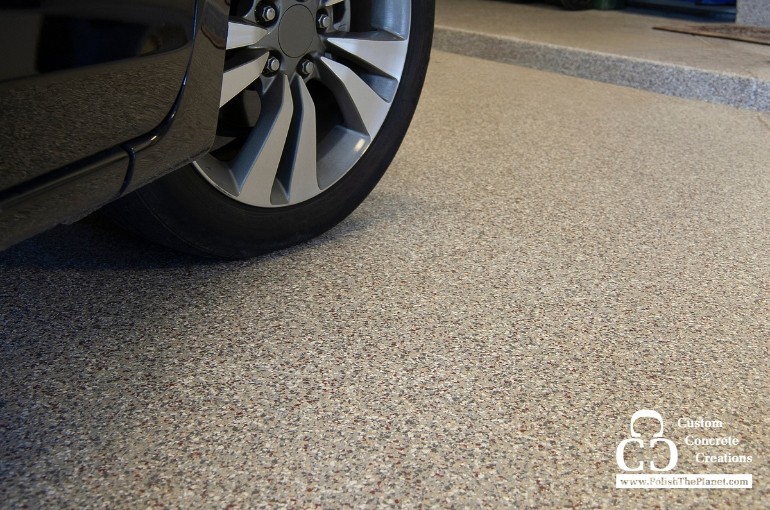
Epoxy flooring has gained popularity for its durability, glossy finish and ability to withstand heavy traffic. While it has many advantages, it's important to consider the potential disadvantages of epoxy flooring before deciding if epoxy flooring is the right choice for your garage. Understanding the pros and cons of epoxy garage floors can help you make an informed decision and explore alternative options that may better suit your needs.
Pros and cons of epoxy garage floor
Before diving into the disadvantages, let’s take a balanced look at the overall pros and cons of epoxy garage floors.
Pros
Durbility
Epoxy flooring is highly durable and can withstand heavy foot and vehicle traffic, making it ideal for garages.
Aesthetic appeal
It offers a sleek, glossy finish that enhances the look of any space.
Chemical resistance
Epoxy flooring is resistant to many chemicals, making it a practical choice for garages where oil and other substances may spill.
Easy to clean
The smooth surface makes it easy to clean and maintain, with most spills wiping up effortlessly.
Customizable
Available in a wide range of colors and patterns, epoxy flooring can be customized to suit personal preferences.
Cons
Long and complicated installation process
The installation process for epoxy flooring is time-consuming and complex. It involves several steps, including surface preparation, mixing the epoxy, applying multiple layers and allowing each layer to cure properly. Surface preparation alone can take several days if the existing concrete needs extensive cleaning or repairs.
The entire process can take several days to weeks, depending on the garage size and the existing floor condition. While DIY kits are available, achieving a professional finish often requires hiring experts, increasing the overall cost.
Sensitivity to temperature and humidity
Epoxy flooring installation is highly sensitive to temperature and humidity levels. If the conditions are not ideal, the epoxy may not cure properly, leading to bubbles, peeling or an uneven finish.
Epoxy should be applied when the temperature is between 50 and 85 degrees Fahrenheit and humidity is low. Extreme weather conditions can delay the project or result in a subpar finish. Those living in regions with extreme temperatures may need to schedule installation during specific seasons, limiting flexibility.
Potential for cracking and chipping
While epoxy flooring is durable, it is not immune to damage. Heavy impacts, dropped tools or sharp objects can cause the epoxy to crack or chip. Once damaged, repairs can be difficult and often require recoating the entire floor.
Garages often see heavy use, making them prone to damage from tools, vehicles and equipment. Fixing cracks and chips can be labor-intensive and may not blend seamlessly with the existing floor.
Slippery when wet
One of the aesthetic appeals of epoxy flooring is its glossy finish. However, this can become extremely slippery when wet, posing a safety hazard in a garage where water, oil or other liquids are common.
The risk of slips and falls increases, particularly in areas where spills are frequent. Anti-slip additives can be mixed into the epoxy, but this adds to the cost and may alter the desired finish.
Chemical sensitivity
Epoxy flooring can be sensitive to certain chemicals. Prolonged exposure to harsh chemicals, such as brake fluid, can cause the epoxy to discolor or weaken over time.
Regular garage activities may involve exposure to chemicals that can damage the epoxy, leading to additional maintenance requirements. Discoloration and damage from chemical exposure can detract from the floor’s appearance.
Odor and fumes
The installation of epoxy flooring involves the use of chemicals that emit strong odors and fumes. These can be unpleasant and potentially harmful if inhaled over extended periods.
Proper ventilation is necessary during installation to mitigate the health risks associated with epoxy fumes. The strong smell can be off-putting and linger for several days after installation.
Contact us
While epoxy flooring offers many benefits, such as durability and a sleek appearance, it’s important to weigh these against the potential disadvantages of epoxy flooring. By understanding these drawbacks, you can make a more informed decision and explore alternative flooring options that may better suit your needs and preferences. Contact us today to discuss your options!
